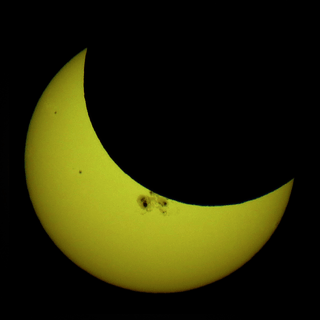Solar eclipse of September 3, 2062
A partial solar eclipse will occur on September 3, 2062. A solar eclipse occurs when the Moon passes between Earth and the Sun, thereby totally or partly obscuring the image of the Sun for a viewer on Earth. A partial solar eclipse occurs in the polar regions of the Earth when the center of the Moon's shadow misses the Earth.
| Solar eclipse of September 3, 2062 | |
|---|---|
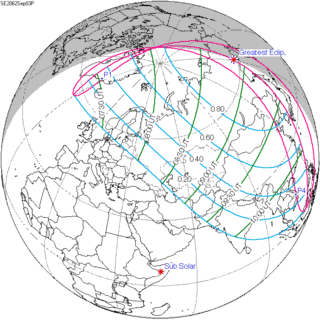 Map | |
| Type of eclipse | |
| Nature | Partial |
| Gamma | 1.0191 |
| Magnitude | 0.9749 |
| Maximum eclipse | |
| Coordinates | 61.3°N 150.3°E |
| Times (UTC) | |
| Greatest eclipse | 8:54:27 |
| References | |
| Saros | 126 (50 of 72) |
| Catalog # (SE5000) | 9647 |
Related eclipses
Solar eclipses 2062–2065
This eclipse is a member of a semester series. An eclipse in a semester series of solar eclipses repeats approximately every 177 days and 4 hours (a semester) at alternating nodes of the Moon's orbit.[1]
| 121 | March 11, 2062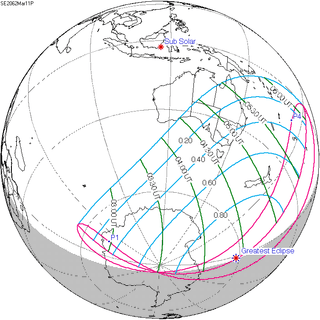 Partial |
126 | September 3, 2062 Partial |
| 131 | February 28, 2063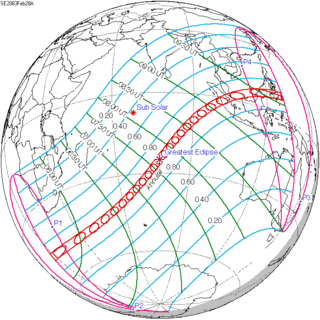 Annular |
136 | August 24, 2063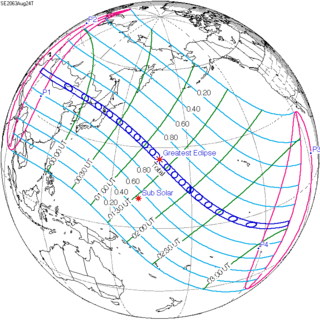 Total |
| 141 | February 17, 2064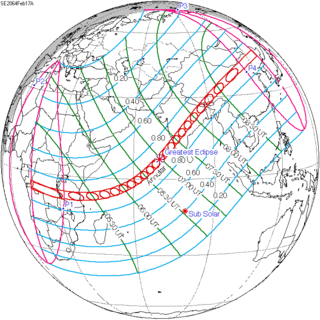 Annular |
146 | August 12, 2064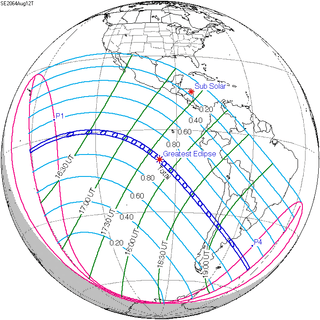 Total |
| 151 | February 5, 2065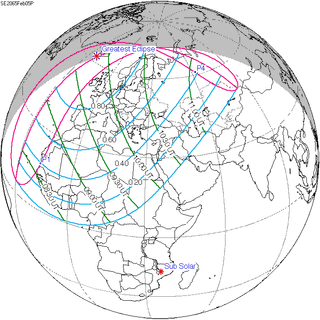 Partial |
156 | August 2, 2065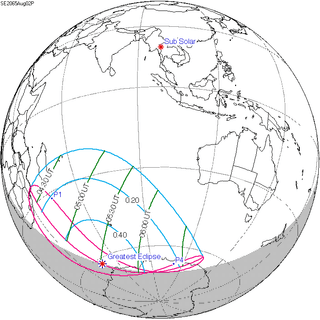 Partial |
Saros 126
It is a part of Saros cycle 126, repeating every 18 years, 11 days, containing 72 events. The series started with partial solar eclipse on March 10, 1179. It contains annular eclipses from June 4, 1323 through April 4, 1810, hybrid eclipses from April 14, 1828 through May 6, 1864 and total eclipses from May 17, 1882 through August 23, 2044. The series ends at member 72 as a partial eclipse on May 3, 2459. The longest duration of central eclipse (annular or total) was 6 minutes, 30 seconds of annularity on June 26, 1359. The longest duration of totality was 2 minutes, 36 seconds on July 10, 1972. All eclipses in this series occurs at the Moon’s descending node.
| Series members 42–52 occur between 1901 and 2100 | ||
|---|---|---|
| 42 | 43 | 44 |
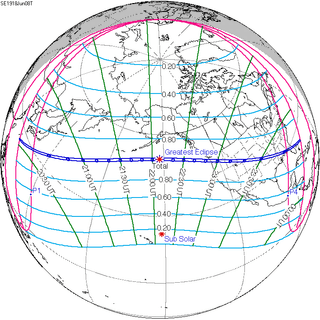 June 8, 1918 |
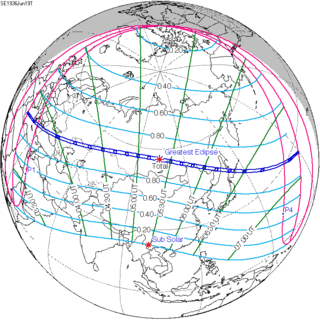 June 19, 1936 |
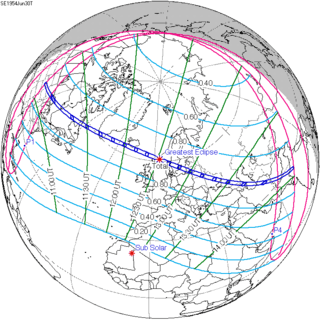 June 30, 1954 |
| 45 | 46 | 47 |
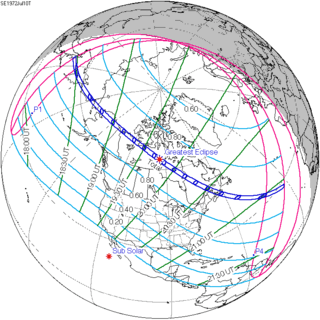 July 10, 1972 |
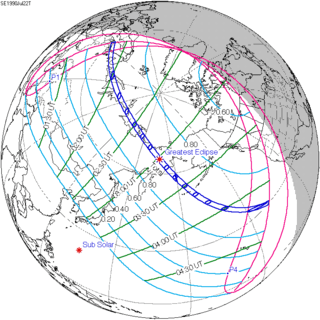 July 22, 1990 |
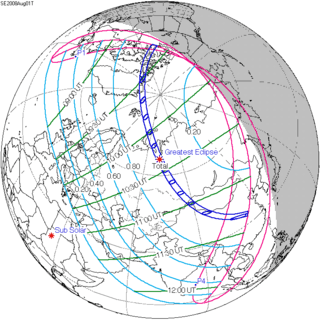 August 1, 2008 |
| 48 | 49 | 50 |
 August 12, 2026 |
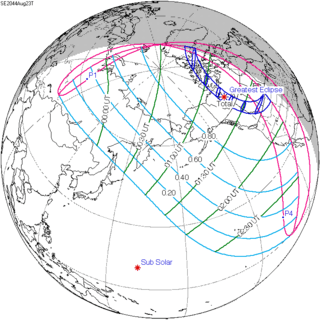 August 23, 2044 |
 September 3, 2062 |
| 51 | 52 | |
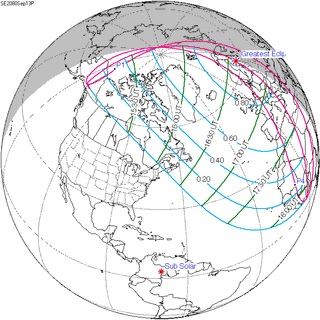 September 13, 2080 |
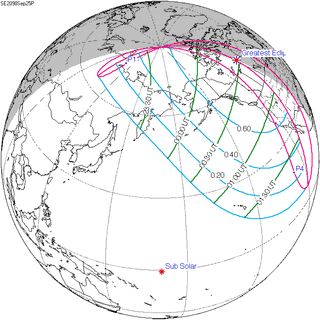 September 25, 2098 | |
References
- van Gent, R.H. "Solar- and Lunar-Eclipse Predictions from Antiquity to the Present". A Catalogue of Eclipse Cycles. Utrecht University. Retrieved 6 October 2018.
.jpg)
